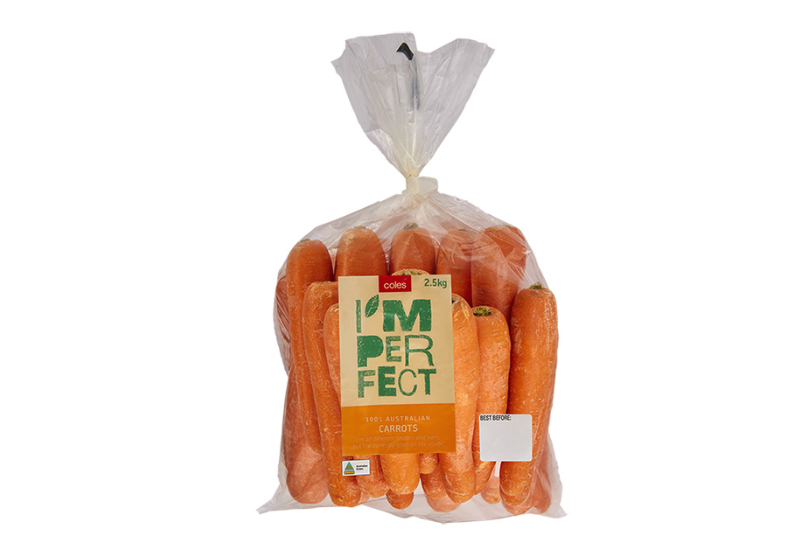Odd-shaped fruits and vegetables are the stars of a new Coles supermarket campaign intended to reduce food waste.
Shoppers will now be able to purchase undersized onions, misshapen carrots, and inglorious oranges and lemons from as little as $1.40 AUD per kilogram thanks to Coles’ ‘I’m Perfect’ initiative. The program — which also features 2 kilogram bags of apples, pears, and sweet potatoes — is being trialed in Victoria and South Australia.
"The range will introduce our customers to millions of pieces of fruit and vegetable that they may otherwise never have met," Coles general produce manager Brad Gorman revealed in a statement. “Our customers know that regardless of shape, size, or any small cosmetic blemishes, Coles produce is fresh and bursting with flavor.”
The fruits and vegetables, which are guaranteed always to be cheaper than their standard counterparts, will come in a soft plastic packaging that can then be recycled via Australian recycling program RedCycle.

The ‘I’m Perfect’ initiative follows previous food waste endeavors by the retail giant. Coles’ currently repurposes unattractive produce into its own-brand products, for example, turning overly ripe bananas into banana bread and slicing disfigured cucumbers into bagged salads.
"All of these products help reduce food waste and increase overall crop yields by utilizing vegetable pieces that typically would not be sold at the retail level,” Gorman added.
According to the United Nations, a third of all globally produced food ends up as waste. Anywhere between 20% to 40% of food produced in Australia is dumped by farmers before it reaches the retail stage for failing to satisfy cosmetic standards.
A 2019 report by rural-focused lender Rabobank revealed individuals could play a part in reducing this. By purchasing ugly foods, a message is sent to supermarkets and suppliers that unattractive food can and will sell.
"As our population increases, we will struggle to feed additional mouths. If we don’t curb our waste, we could run out by 2050,” said Glenn Wealands, head of client experience at Rabobank. “While the reduction in food waste is a global responsibility, we all – as individual consumers – can play a significant role in sustaining this planet for generations to come.”
Coles’ isn’t the first supermarket to urge customers to purchase unattractive produce that would have otherwise been thrown out. Competing Australian supermarket Woolworths has been marketing ‘ugly’ food since 2014. Several European and American supermarkets have also implemented the initiative, including Sainsbury’s, Lidl, and Tesco.